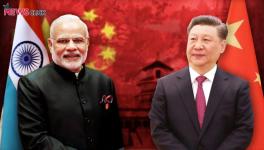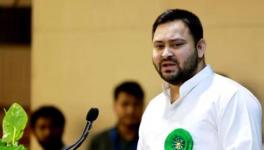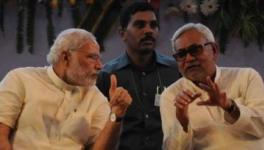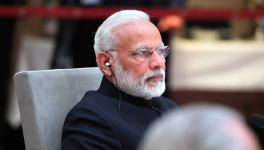Indo-US IP Committee: A Compromise of Sovereignty
Newsclick interviewed Dr. Amit Sengupta of Jan Swasthya Abhiyaan on the recently announced Indo-US Working Committee on Intellectual Property. According to Amit, the announcement of this committee indicates the NDA government’s growing discomfort with the current intellectual property regime in India which, marked by low patent stringency, has been in line with the country’s specific developmental needs. The committee would not be a mere consultative body but would have decision making powers. The formation of the committee, Amit highlighted, may well signal the alignment of India’s patent regime with the overall neoliberal growth trajectory that the government is pursuing. Higher patent standards could make a serious dent on India’s patent sovereignty, and render exorbitant a variety of life-saving drugs and other vital goods and services. It would also be a reversal of the model status that Indian patent laws enjoy amongst a number of low and medium income countries, which see in these laws a viable approach to development and self-sufficiency.
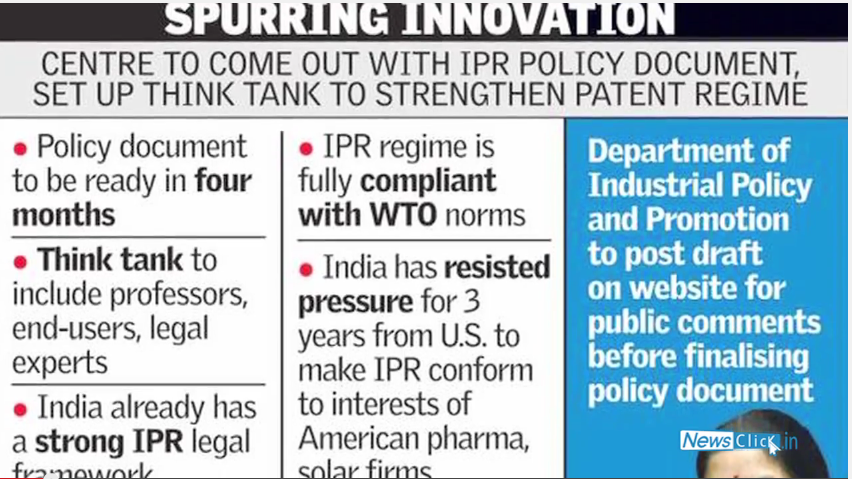
Rough Transcript:
RB: To discuss the issue, we have with us Dr. Amit Sengupta from the Jan Swasthya Abhiyan. Hi Amit and thanks for being with us today. Now, why has this working group been set up and what is it's mandate. There appears to be a lack of clarity over the terms of reference to this group. So what will this group actually look to achieve? Will it actually have the power to change or agree to change in the India Patents regime?
ASG: See, many things are not clear at the moment but what is rather ominous is the chain of events that has led to the setting up of this working group. Just before Prime Minister Modi was to leave for the US, we had a commerce minister, Nirmala Sitharaman, making a statement just off the cuff and there was no context really saying India does not have an IP policy. We need to create a new IP policy, the new government is working on that. Now that obviously signaled the fact that the government is looking at ways in which to change the existing consensus around the intellectual property that has across party lines existed for almost two decades. I mean even before the TRIPS agreement was signed. The consensus was that given India's priorities and stage of in economic and technological development, we need an IP policy which should promote India's priorities so we have not deliberately in IP laws put in provisions which asks for high standards of IP protection. Now, the fact that the government is talking about re-looking the IP policy, so it does not make a sense and the commerce minister says that we don't have an IP policy. We have an IP policy so obviously what she is saying not in so many words is that the present government does not agree with the consensus. This was followed up by Prime Minister Modi's visit and then one of the outcomes of the joint Obama-Modi statement was the formation of the IP the working group. Now, from the nebulous reports that have come out regarding the IP working group, it seems that it is going to have what they call decision making powers. So, it is not just a consultative mechanism which the government have claimed that there is nothing much to read into it, it is a consultative mechanism. We wish to know what the US wants out of us. Now, you don't need a special mechanism for that. For 35 years, India has been on the watch list of the USTR. In detail, every year, they produce a report saying what they don't like about India's IP law and precisely this that specially in the area of pharmaceuticals but also in the area of copy right related to music, related to software etc. they have been demanding higher standards of protection. So what this kind of a working group would actually accomplish is not clear but what is worrying is that it says that it will have decision making powers which means that it infringes upon the powers of parliament to actually make policy. As I was saying earlier, India's IP laws has been a product of a prolonged debate given India's priorities and interest.
RB: Now, given that India as you have mentioned consistently maintained that IP regime has been TRIPS compliant and and these flexibilities are there to benefit a large mass of our population. Does this setting up of the working group the fact that Nirmala Sitharaman has made comments as you just mentioned, does it indicate a weakening of India's stands weakening in international arena?
ASG: Of course, it means a shift in India's position. Now, what actual shape the shift is going to take is obviously we only know the future. But, it is important to understand and underline that for example in the area of pharmaceuticals, it is not only an issue of Indian patients being deprived of low cost generic medicine. But, India is seen as a lifeline for poor patients across the world and not just in lower and middle income countries. Also in developed countries it needs to be also underlined that even in the previous government, there have been voices which have started sort of saying that Indian IP laws are not consonant with the kind of neo-liberal reforms that the economy is moving towards. What I think is happening is the present government is removing the fig leaf of legitimacy provided in the Indian patent act in terms of health safe guards that the previous government in spite of all the neo-liberal reforms was maintaining, they are trying to discard that and trying to align India's IP laws with it's overall neo-liberal economic policies.
RB: Now, this is something you have touched upon but the wording of the statement announcing the setting up directly links the prevalence of a particular type of an IP regime to economic growth and innovation. Do you actually think this co-relation is correct at directly established?
ASG: See, this is been a repeated nauseam by advocates of higher protection and if you have higher IP protection you will have more innovation, you will have more money coming on etc. There is absolutely zero evidence that it is actually happening. There is evidence that in fact, there is evidence to the contrary. There is evidence that in fact, all countries have had lowest standards of IP protection when they were playing catch up in the sense that when they were trying to catch up with existing developing nations both economically and technologically, the US, if you really look at the IP protection in US in the late 19th and early 20th century, they have actually lowest standards of IP protection because they were trying to catch up with the Europe at that time. You had Japan doing the same thing in the 20th century, you have the so called the so called South-east Asian success stories Taiwan and the others doing the same thing. So there is in fact, evidence that countries have done best when they have aligned IP protection with their stage of development. So you can not have IP laws that is like one size fits all. Now, what the 1995 TRIPS agreement did was it tried contrary to the indications that existed, harmonized IP laws across countries. The only saving grace was it also allowed what were called the flexibilities of the health safeguards. What is now being played out really is an attempt to even get rid of those flexibilities even though the TRIPS agreement remains if countries like India starts removing these flexibilities you really then have the same harmonized high standards of the IP across the world.
RB: I think it also makes difference towards the fact that they have other lot of other smaller countries particularly in the global South in South America who want to ameliorate sort of regime we have in India but will be discouraged we go away from this sort of..
ASG: Absolutely, for example, section 3D of the India act. Now, there is a lot of interest in several countries in the South of trying to put in language similar to 3D in their own patent legislation. So, we have this peculiar condition where you have in one side not just civil society activists, health activists, but even country governments saying that the Indian patent act is a kind of a model act for low and middle income countries. You have an Indian government which is starting to say that we don't agree with our own act and we need a different act.
RB: Do you think it fits in well at all with the make in India programme given that it is going to have an adverse effect on generics which you mentioned are providing huge of drugs for India, manufacturing here and earning income for our country?
ASG: I think, it makes absolute sense it links very well with make in India. See, it is interesting it is not made in India campaign and it is make in India campaign which means that you are inviting all and sundry from across the world to use Indian personnel, to use Indian infrastructure to make goods which they can expatriate out, profits that they can expatriate out and in fact for a make in India of this kind they would love a IP regime with high standards of protection so that they can repatriate higher profits.
RB: Now, the DIPP has claimed that the setting up of this working out will enable bilateral decision making on patenting rather than say unilateral imposition of standards by the US or unilateral pressure being put by US. Do you actually buy this argument or do you actually think that the US as you have already hinted towards, the fact that US to be involved in decision making in our laws is a violation of our sovereign rights?
ASG: Well DIPP has been talking in different voices which I guess reflects in a way the fact that there is still no absolute consensus even with the bureaucracy and the government in the requirement to change in this law. The DIPP in fact initially also said that we already have an existing trade forum with the US since 2010 which provides a space for discussion of this kind. But the DIPP has also now said that this kind of a group is innocuous. So it is obviously speaking in two voices. DIPP has already circulated a paper where one of the things it says in that is that while developed countries have high standards of IP we are now seeing a lot of developing countries changing IP legislation or IP practice which are in sync with high IP standards followed by developed countries thereby signaling that India can also be doing that because everybody is doing that. It is also not correct at all I mean, in fact, the interest in many countries such as Brazil, Latin American countries, even some Asian countries Thailand has been to try to see how they can mitigate the impact of high IP standards. In fact, they now regret that unlike India they did not make use of the ten year period transition period after the TRIPS agreement was signed, they changed their IP laws too soon, there was not enough though given into how those IP laws would incorporate them flexibilities. So there is an interest in actually in reverse direction in many countries. But it is also true because of the pressure by the EU and the US specially led by the Free Trade Agreement not so much the WTO. The countries are being pressured into having sort of legislations in place which have higher standards of protection but that is by no means reflection of their actual intent of willingness but rather a reflection of the kind of pressures that they and specially bilateral pressure that the EU and the US is now bringing to back through the various Free Trade Agreement.
RB: Now, again as you mentioned, given the tremendous pressure which is actually being put by the US on our government so we have India placed on priority watch list we had now out of turn review of our IP regime. Do you think that working group can be used in our benefit in any way?
ASG: Anything can happen depending on what the parties want to make out of it. Now, we know what the US wants to work out of it. The point is what does India want out of it. That is going to determine what the working group is going to do. There are again disturbing signals regarding India's intentions. That for me is more important rather than TOM and stuffs like that. So you have for example Arvind Subrahmaniam who is today the Chief Economic Advisor to the Indian government. He as a private citizen in the US had in fact given an opinion to the US house, an expert opinion saying that there is a strong case for the US to take India to the WTO court because of the violations of the TRIPS agreement specifically related to the section 3D. So you have people like this who are now constructing policy.
RB: Well that's all the time we have today Amit. Thanks for joining us. This is clearly an important issue something that we will keep an eye on in the future as well. Thanks for watching.
Get the latest reports & analysis with people's perspective on Protests, movements & deep analytical videos, discussions of the current affairs in your Telegram app. Subscribe to NewsClick's Telegram channel & get Real-Time updates on stories, as they get published on our website.












